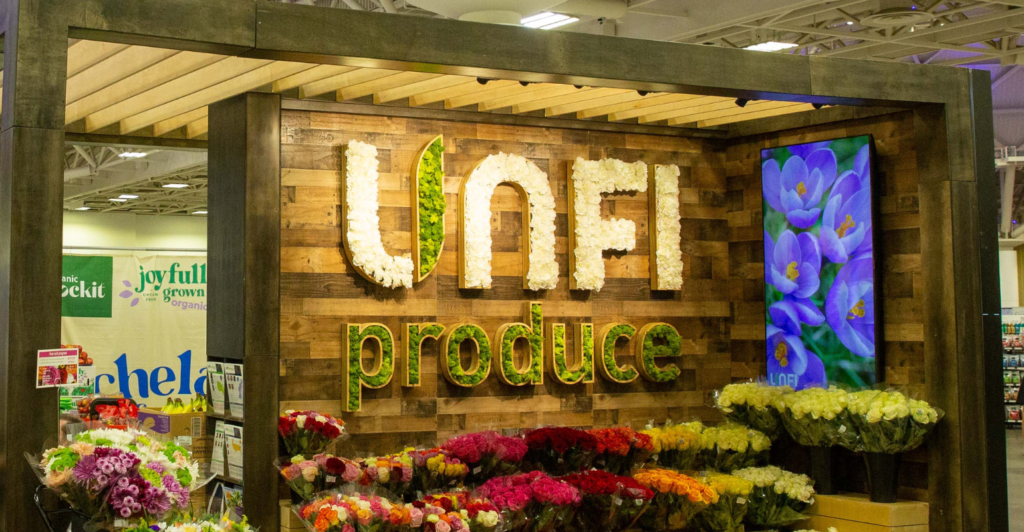 Bill Wilson is the senior editor at Supermarket News, covering all things grocery and retail. He has been a journalist in the B2B industry for 25 years. He has received two Robert F. Boger awards for his work as a journalist in the infrastructure industry and has over 25 editorial awards total in his career. He graduated cum laude from Southern Illinois University at Carbondale with a major in broadcast communications.
Bill Wilson is the senior editor at Supermarket News, covering all things grocery and retail. He has been a journalist in the B2B industry for 25 years. He has received two Robert F. Boger awards for his work as a journalist in the infrastructure industry and has over 25 editorial awards total in his career. He graduated cum laude from Southern Illinois University at Carbondale with a major in broadcast communications.
Not too long ago, United Natural Foods, Inc. (UNFI) appeared to be on the brink of something great.
In 2018, the organic foods distributor completed its $2.9 billion purchase of fellow wholesaler SuperValu — a big move that would increase UNFI’s distribution to over 110,000 products to over 40,000 customer locations in the U.S. and Canada.
The acquisition settled what could have been a very uncertain period for the Providence, R.I.-based UNFI. According to CNBC, the distributor’s biggest customer at the time was Whole Foods. UNFI’s deal with Whole Foods was set to expire in 2025, and when Amazon entered the scene in 2017, there was a threat to that lifeline. UNFI, however, has just extended its contract with Whole Foods.
But sources close to the matter have told Supermarket News that there has been trouble brewing ever since UNFI bought SuperValu, and that the distributor is now considering a sale. The SuperValu acquisition should have bolstered UNFI on Wall Street, but instead, it only added to a losing streak that lasted over two years.
Sources also say there have been optimization issues around inventory, delivery, and expenses. SuperValu stores that should have been shuttered instead stayed open after the deal. Bad business practices were also inherited from SuperValu, and leadership at UNFI has either been reluctant, slow, or both when it came to dissolving those relationships.
In an exclusive interview with Supermarket News, UNFI CEO Sandy Douglas denied that the company is considering a sale. He also noted the SuperValu acquisition happened just before the COVID-19 pandemic, saying that the global crisis caused the entire industry to suffer a bumpy ride, not just UNFI.
Despite Douglas’ assurances, multiple unnamed sources close to UNFI say the distributor is considering a sale.
According to a source close to the matter, they have been approached by consulting firms offering to pay for information on the distributor, which could be useful to potential buyers.
Douglas would not comment on the possibility of such an action, but did stress UNFI just approved a three-year plan and there is excitement about the future.
“The industry environment is expecting companies like UNFI to step up and be an incremental source of value for retailers around the country,” he said.
The trouble extends beyond SuperValu, too. Another source confirmed that New York-based Key Food Stores Co-op, Inc. signed a long-term contract with UNFI not long ago but has since gone to a competing wholesaler to act as a secondary supplier, citing poor on-time performance from UNFI, saying the distributor often can’t fill more than 15% of the order.
The company’s recent stock fluctuations also seem to support the speculation that UNFI may be considering a sale. UNFI went from a high of almost $81 a share on Feb. 16, 2015, to $10.07 on Dec. 17, 2018, just two months after the SuperValu purchase. UNFI shares went as low as $6.47 on Feb. 24, 2020, before rallying to $49.93 on Nov. 1, 2021 due to the COVID-19 pandemic when more people were eating at home. Perhaps the acquisition was finally showing positive returns, but it was short-lived as UNFI sank into another losing streak and its stock was trading as low as $9.87 a share in early May. As of the morning of June 17, shares were trading at $12.86.
On April 15, UNFI hired Giorgio Tarditi, who has a history of managing M&A deals, as president and CFO. Tarditi previously worked for GE, holding several positions in a variety of fields, including healthcare, aviation, energy, and drilling and production. This is his first exposure to the grocery market.
Supermarket News asked Douglas if Tarditi was hired specifically to facilitate a sale of UNFI — Douglas said he was not.
UNFI released its first quarter results on June 5. While the company reported a net sales year-over-year decrease of 0.1% at $7.5 billion and a net loss of $21 million, there was a third consecutive quarter of improved profitability.
The distributor is certainly showing signs of life, but will a potential sale be on the table in the near future? Could the Whole Foods extension serve as a tasty morsel to a buyer? There is enough writing on the wall, we just need to wait to see it become market-legible.


